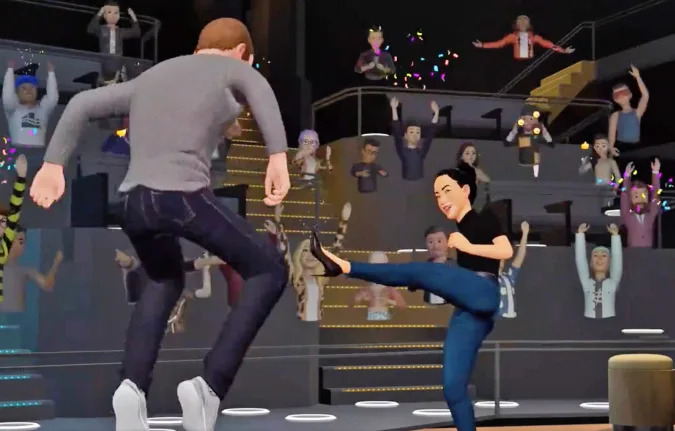Meta's VR legs video wasn't what it seemed
The animated Mark Zuckerberg shown jumping on screen apparently used motion capture.

When Meta announced that its Horizon Worlds avatars were getting legs in the near future, we got to see VR Mark Zuckerberg jump up and down to show them off. Apparently, though, what we saw wasn't a real demonstration of how Meta was able generate their full-body virtual reality avatars. According to UploadVR editor, Ian Hamilton, the event used animations that were created using motion capture:
The process, which is called mocap for short, is widely used in cinema and games and entails recording the movements of a real person or object so they can be turned into computer animated graphics.
During the event, Meta said that "legs have been one of the most requested features on [its] roadmap, and it’s been a significant area of [the company's] focus." Indeed, the addition of legs to Horizon's legless avatar would be a noteworthy achievement due to the technological constraints of the VR devices we have access to today. VR headsets as we know the weren't made to track legs. As Meta CTO and Reality Labs team leader Andrew Bosworth had explained to CNN Business earlier this year: "Tracking your own legs accurately is super hard and basically not workable just from a physics standpoint with existing headsets." Meta's solution to that problem involves the use of an artificial intelligence model to predict where the user's legs are supposed to be.
We'll have to wait a bit more to see these AI-powered VR legs in action, though, because Meta's full-body avatars that don't rely on mocaps won't be coming out until 2023.


No comments:
Post a Comment